
Japan has used funds from its tsunami recovery budget to subsidise its controversial annual whaling programme, environmental activists say.
Greenpeace says 2.3bn yen ($30m;

 World's oceans suffer from record-breaking year of heat
World's oceans suffer from record-breaking year of heat
Fuelled by climate change, the world’s oceans have broken temperature records every single day over the past year, a BB...
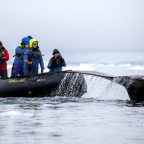 Following Antarctic whales for climate change clues
Following Antarctic whales for climate change clues
Inside the bodies of humpback whales are clues about how climate change is transforming Antarctica...
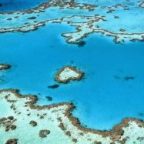 97% of Corals Dead in Northern Great Barrier Reef
97% of Corals Dead in Northern Great Barrier Reef
Nearly all corals on a reef at Lizard Island in Australia are dead following one of the worst mass bleaching events the...
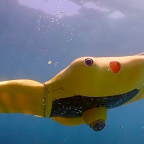 China develops technology for monitoring coral reefs
China develops technology for monitoring coral reefs
Soft-body submersibles designed to resemble and move like manta rays have been developed by a team at the School of Nav...
 Shark Attack Statistics & Trends in 2024: What the Latest Data Reveals?
Shark Attack Statistics & Trends in 2024: What the Latest Data Reveals?
Originally published on February 2,2023, this article has been updated on June 4, 2024 to reflect the latest research ...
 Oceans suffer from record-breaking year of heat
Oceans suffer from record-breaking year of heat
Fuelled by climate change, the world’s oceans have broken temperature records every single day over the past year, a BB...
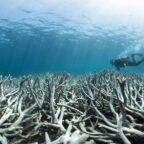 Fossil Fuels Blamed for ‘Colossal Tragedy’
Fossil Fuels Blamed for ‘Colossal Tragedy’
The world is not doing enough to protect coral reefs, the United Nations’ special envoy for the ocean said last week, i...
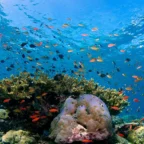 A Healthy Coral Reef Is a Symphony
A Healthy Coral Reef Is a Symphony
The Great Barrier Reef is the world’s largest collection of coral reefs, a natural wonder stretching over 1,400 miles o...
December 13, 2011 Posted in News

Japan has used funds from its tsunami recovery budget to subsidise its controversial annual whaling programme, environmental activists say.
Greenpeace says 2.3bn yen ($30m;
 World's oceans suffer from record-breaking year of heat
World's oceans suffer from record-breaking year of heat
Fuelled by climate change, the world’s oceans have broken temperature records every single day over the past year, a BBC analysis finds...
 Daroyen Village
Daroyen Village Daroyen village compared to other Raja Ampat islands is a less populated area situated on a little island of Betew by Gam...
This website uses cookies so that we can provide you with the best user experience possible. Cookie information is stored in your browser and performs functions such as recognising you when you return to our website and helping our team to understand which sections of the website you find most interesting and useful.
Strictly Necessary Cookie should be enabled at all times so that we can save your preferences for cookie settings.
If you disable this cookie, we will not be able to save your preferences. This means that every time you visit this website you will need to enable or disable cookies again.
Social Profiles